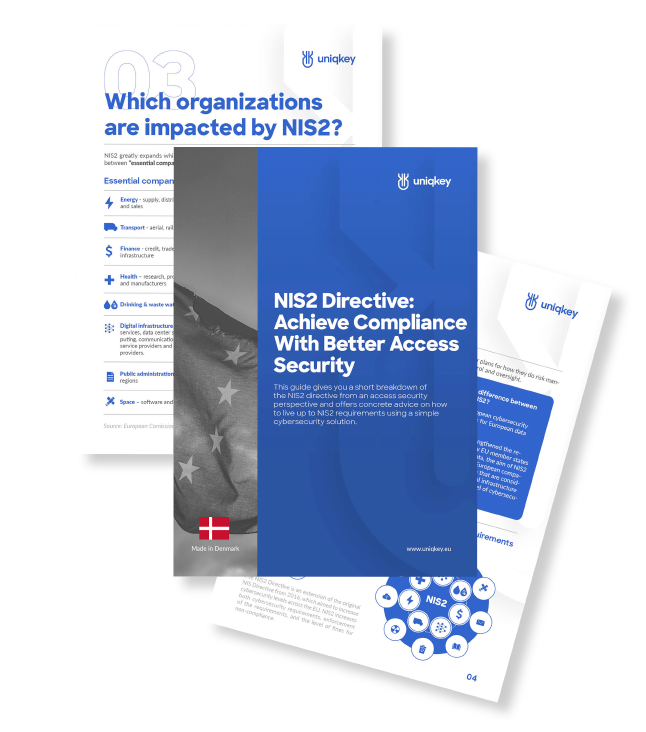IMPORTANT ENTITY
Postal Sector
Learn how the NIS2 directive affects organizations in the postal sector.
The Postal Sector
The postal sector includes a diverse range of organizations responsible for delivering mail and parcels, from national postal services to small courier companies with niche markets.
Due to the increased reliance on digital systems and networks to manage and deliver postal services, this sector has become more susceptible to cyber threats. As a result, the NIS2 directive recognizes the postal sector as an important entity and mandates that organizations within this sector take steps to ensure their cybersecurity posture is robust and resilient.
What’s Included In This Sector?
This sector includes: Postal and courier services
Annual Revenue
€79B
Estimated annual revenue generated by the EU postal sector.
postal jobs in eU
1.7MM+
Number of people employed in the EU postal sector.
Key Cybersecurity Challenges
For The Postal Sector
Ransomware Attacks
Ransomware attacks pose a serious threat to the postal sector, as they cause significant disruptions to postal services, particularly if critical systems are affected.
Malware Infections
Malware infections can be particularly damaging to operators in the postal sector, as they can lead to severe data loss or long-term downtime in critical systems.
Supply Chain Attacks
The postal sector relies heavily on a complex network of suppliers and partners to operate. A supply chain attack could cause disruptions and delays, as well as result compromised data.
Lack of Cyberawareness
A key challenge for the postal industry is a lack of cybersecurity awareness among employees and management. This results in failture to implement security best practices.
Phishing Attacks
Phishing attacks are a common threat in the postal sector, as employees receive a large number of emails from unknown senders that could contain malicious links or attachments.
Insider Threats
As with any industry, the postal sector is also susceptible to insider threats. Employees or contractors with access to sensitive systems could cause harm to the organization.
The Implications of NIS2 For The Postal Sector
The digital infrastructure sector, which includes technology providers like data centers, content delivery networks, and trust services providers, will be heavily impacted by the NIS2 directive, affecting every operational aspect.

INCREASED CUSTOMER DATA PROTECTION
Postal operators often handle a significant amount of personal data, such as names, addresses, and payment information. The NIS2 directive will require postal operators to ensure the security of this data, as a data breach could have severe consequences for both customers and the postal operator. Postal operators will need to implement robust cybersecurity measures to protect this data, such as encryption and access controls.
MORE STRINGENT SUPPLIER SECURITY
Operators in this sector rely on a wide range of suppliers and partners, including those that provide transportation and technology services. The NIS2 directive requires postal operators to assess and mitigate the cybersecurity risks associated with their supply chain. This could result in increased oversight and auditing of suppliers, as well as the implementation of more stringent security requirements.
greater industry collaboration
The NIS2 directive emphasizes the importance of cooperation and information-sharing among organizations in the same sector. This could lead to increased collaboration between postal operators, as they share information on emerging threats and best practices for mitigating cybersecurity risks. It could also result in the development of sector-specific guidelines and standards for cybersecurity.
IMPACT ON THE POSTAL INDUSTRY
Compliance with NIS2 requirements may result in increased costs and administrative burdens for postal operators, which could impact their ability to deliver packages across borders and may lead to a more fragmented market. Additionally, the directive’s focus on supply chain security may require postal operators to conduct more rigorous assessments of their suppliers and partners, potentially leading to increased oversight and auditing of supply chain security.
Get NIS2 Complaint (Whitepaper):
Time is running out to comply with NIS2 regulations. Starting your compliance journey sooner rather than later is crucial.
A typical NIS2 compliance process, including security assessments, auditing, consulting, and tool implementation, takes approximately 12 months.
For practical advice on how to comply with the requirements, check out our NIS2 white paper.

